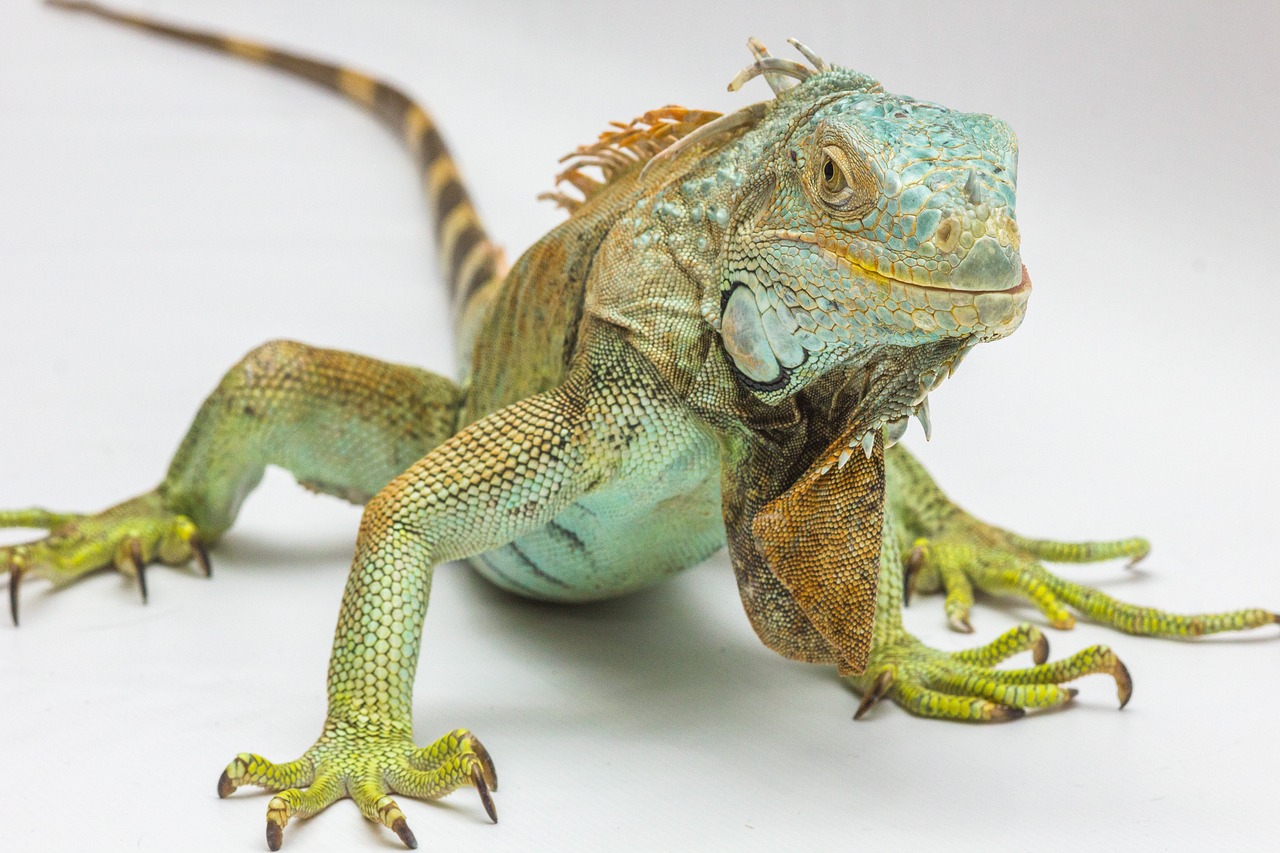Iguanas are large, arboreal lizards native to tropical regions of the Americas. They are characterized by their long, slender bodies, powerful limbs, and distinctive crests on their heads. They are herbivores and play an essential role in the ecosystems they inhabit.
Table of Contents
Scientific Name
Iguana belongs to the family Iguanidae, a diverse group of lizards found in various parts of the world. Their scientific classification includes multiple species, each with its unique characteristics and adaptations. With their unmistakable appearance and distinct behaviors, iguanas have earned a special place in the realm of reptiles.
Types of Iguanas
Iguanas encompass a broad spectrum of species, each demonstrating distinct attributes that suit their respective environments. Some well-known types include the green iguana (Iguana iguana), marine iguana (Amblyrhynchus cristatus), and lesser Antillean iguana (Iguana delicatissima). Each type has adapted to its habitat in remarkable ways, contributing to the diverse array of iguana species across the globe.
Evolution
Iguanas’ evolutionary journey stretches back millions of years, marked by their adaptation to various habitats and conditions. Fossil records provide insights into their transformation from ancient ancestors to the diverse and specialized species we observe today. This journey offers glimpses into the ecological changes that have shaped the world of iguana.
Behavior
Iguanas are known for their intriguing behaviors, which range from basking in the sun to elaborate courtship rituals. Their social interactions and communication methods often play a role in securing territory and finding mates. Understanding their behavior sheds light on the intricate balance of survival and reproduction in their ecosystems.
Habitat
Iguanas thrive in a variety of habitats, including tropical rainforests, deserts, and coastal regions. Their adaptations to specific environments allow them to exploit resources and carve out niches within their ecosystems. The marine iguana, for example, has evolved unique traits to survive in the challenging environment of the Galápagos Islands.
Diet
Iguanas display diverse dietary preferences based on their species and habitats. While some are herbivores, others incorporate insects and small animals into their diets. Their foraging strategies, whether browsing on vegetation or hunting for prey, showcase their ability to adapt to the available resources.
Natural Predators and Threats
Despite their often intimidating appearance, iguanas face threats from various predators, depending on their habitat and size. These predators include birds of prey, large mammals, and even domestic animals. Additionally, human activities such as habitat destruction and illegal wildlife trade pose significant threats to certain iguana populations.
Reproduction, Offspring, and Lifespan
Iguanas reproduce through sexual reproduction, with elaborate courtship rituals often playing a crucial role in attracting mates. Female iguana lay eggs, which they bury in the ground or in nests. The survival rate of hatchlings is often low due to predation and environmental factors. The lifespan of iguana can vary greatly based on species, habitat, and environmental conditions.
Conservation Concerns and Population Trends
The conservation status of different iguana species varies, with some facing threats due to habitat loss, hunting, and human disturbance. Conservation efforts are vital to preserving their habitats and ensuring the survival of these remarkable reptiles.
Conclusion
The world of iguanas is a captivating blend of adaptations, behaviors, and ecological interactions. From their diverse species to their essential contributions to ecosystems, these reptiles exemplify the intricate life balance on Earth. As we continue to explore and understand their significance, we deepen our appreciation for the interconnected web of life.
FAQs
- Are iguanas dangerous to humans?
Generally, they are not dangerous to humans unless they feel threatened. They may bite if cornered or provoked.
- Can iguana swim?
Yes, some iguana species are skilled swimmers and can be observed in aquatic habitats.
- Do iguanas change color?
Some iguanas, like marine iguana, can change color to regulate their body temperature or communicate with others.
- What is the lifespan of iguanas?
Iguana’s lifespans can range from 10 to over 20 years, depending on species, habitat, and care.
- Can iguanas be pets?
Yes, they can be kept as pets. However, they require a large enclosure and a specialized diet. They can also be aggressive, so they are not suitable for everyone.
